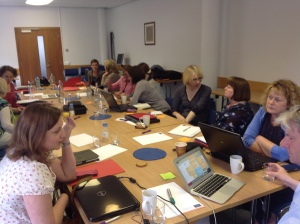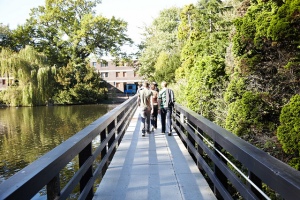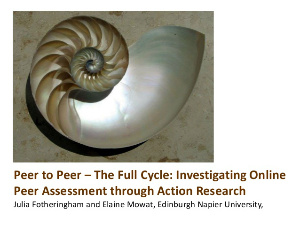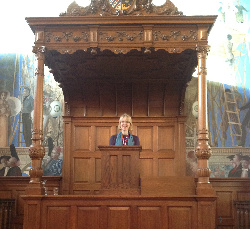As June drew to a close, the third HEREN/Teaching fellows writing retreat was held at Heriot Watt. This year we were also joined by colleagues from the School of Nursing which created a great mix of people from across the university. Recognising the combined knowledge and expertise of the group I asked everyone for their top tips at the end of the retreat. Here is what they came up with.
1. ”Use peer support”
Realise your concerns or worries about writing are very common, most people find it challenging!
2. “Talk through the theory and argument of the paper with another interested person”
Create opportunities to get peer feedback on your drafts and regularly discuss your writing with others.
3. “Share writing goals with someone to help you stick to it”
Make yourself accountable. Buddy up with a colleague and encourage each other to keep going, or find a community of writers that will help you keep on track. You could use social media like the twitter feed #acwri to publically announce your writing goals.
4. “Identify your golden thread and try to articulate it to someone”
Understand and define the ‘golden thread’ that weaves together all the various aspects of your paper into a whole. If this thread is broken, it makes it much more difficult for a reader to follow your argument or to see how you have contributed to the field. Keep to the language of any theory or methodology to enhance the golden thread.
5. “Start with the structure and put the amount of words in brackets next to each heading”
This can really help you to focus and get the balance of your article right. It can also create a sense of satisfaction when you complete a section.
6. “Email the editor to check if they are interested in your topic”
Often the first question an editor asks will be ‘is this a good match for our journal?’ Don’t waste time writing for the wrong target journal.
7. “Stick rigidly to author and journal guidelines”
Journals try to help us get published. There are always guidelines for the author, aims and scope of the journal or editorials to help us figure out if our piece would be a suitable topic for that journal.
8. “Find a quiet space”
Sometimes we just need to find a quiet space with no interruptions to really focus our efforts. It’s important to figure out where and when you write best. Find what works well and stick with it!
9. “Switch off the internet access / wifi”
Don’t be tempted to just check a couple of emails before you get started, save them as a ‘reward’ for finishing your writing session. There are apps that can block your internet access for a set amount of time.
10. “Schedule writing into your diary”
Scheduled writing sessions means are more likely to happen than a vague idea that ‘sometime next week I will do some writing….’
11. “Protect writing time in your diary”
Defend it – just like an important meeting or teaching prep – otherwise it will disappear.
12. “Little, often”
The retreat was that rare opportunity of three days to focus on writing, but these don’t come along very often. Rather than wait for that unlikely week where you have no other competing demands for your time, making regular writing a habit – ‘snack writing’ rather than bingeing.
13. “Write fast, edit later”
When we talk about writing sessions – we mean writing. No stopping to read the latest paper, or to double check that crucial reference. Editing that sentence till it shines or reformatting the article headings into Ariel from Times New Roman is not writing!
14. “What seems difficult can become much easier tomorrow morning when you’re not tired”
I am sure any writer is familiar with the experience of staring at a paragraph for 20 minutes and realising you have only written two new sentences. Using short regular writing sessions can help keep you focused.
15. “When you finish up writing for the day, always leave a note to say exactly what you’re going to do when you come back to it”
Always signpost where your writing will be going next – that way you spend less time trying to remember what you were thinking from the last session.
Do you have a strategy or tip to help stay focused when writing a paper? If so, why not share it with the HEREN community via the blog!
Blog author: Dr Grainne Barkess, Reseacher Developer at Edinburgh Napier University and Writing Retreat Facilitator








